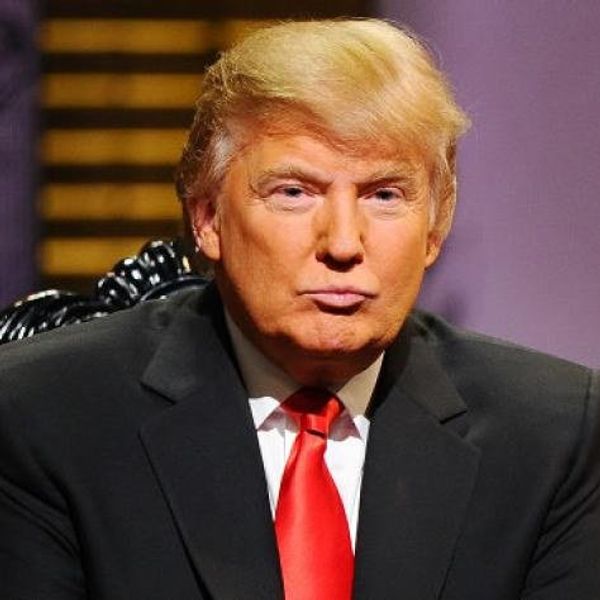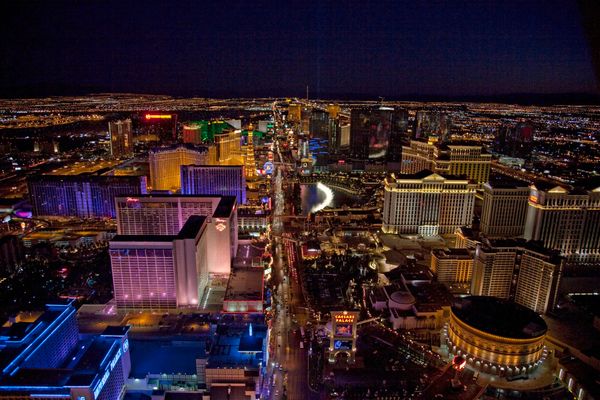When George Bush won the disputed presidential election of 2000, liberals and members of the Democratic party were upset, sure. Frustrated even, but people moved on with their lives. The same thing happened with President Barack Obama in 2008. But this was different. The GOP pledged from day one not to work with him under any circumstances, even though he was a moderate liberal; not so much different than Al Gore. Conservatives remained upset throughout the duration of his eight years and attempted to obstruct any progress made by Obama. But under neither candidate, did a vast portion of the population feel as insecure, mortified, and as terrified as they did in the early hours of November 9th, 2016.
As Trump’s electoral count climbed over 270, I felt overcome by a sense of defeat, as I’m sure many of us did. But even more importantly, I was angry, I was hurt, but was ultimately disgusted at the choice us Americans picked. As a Clinton supporter, I was motivated by both liberal progress and a warranted fear of Trump. For obvious reasons, I felt Trump was a threat to democracy and non-whites across America. As a documented, light-skinned, Mexican-American, straight male, I should also note that I will face little to zero consequences of Trump’s promises and rhetoric. But for other members of minority groups and women, I was and am still scared.
Although there was no logical argument to be made for him, I understand why some of his supporters voted for Trump, minus the apparent racism and intolerance. But they chose the wrong candidate for the right reasons. They saw a man who built himself up and became a hero of Capitalism. And for some reason, they saw themselves in him; the working-class man. Of course, he isn’t. Another major reason was that they were frustrated with the establishment of politics, a very sound and logical reason; the very same reason I supported Bernie Sanders over Hillary during the primaries. As ill-fated as the Democratic National Convention was, I was still obliged to vote for Hillary Clinton because we shared the same liberal ideologies. Trust me when I say it was a not a partisan decision, as our party works towards the same goals. But Trump supporters were disgusted with Clinton, which was justification enough for them to vote for him over her simply because he wasn’t her; the last major reason. Her flaws with her emails, big bank connections, and shady Clinton Foundation dealings fazed me, but in no way would they have dramatically changed the US for the worse. My case for her was that for the next four years, the United States would’ve been safe at the very least. At the very worst, we would’ve had four more years of the same-old-same-old. Come Clinton’s would’ve-been re-election in 2020, I would’ve been fine if voters sided with another candidate (as long as they didn’t share the demagoguery and ignorance of Trump). Show me the next progressive anti-establishment candidate from any party without the uglier aspects of Trump, and you could’ve counted me in.
There was no point in getting through to the uninformed and bigoted Trump supporters, no matter how much any of us tried. Above all of Clinton’s flaws, they could not see the forest from the trees. Of course, there were minor incentives to elect him: his appointment of Supreme Court justices, his promise to deport undocumented immigrants, his tax plan (which was slammed by hundreds of economists), and plenty more reasons. But that’s the thing: they were, for the most part, minor reasons; all of them easily outweighed by the long-term effects of a Trump presidency.
There’s no easy way around it. Black voters, Mexican voters, Asian voters generally were vehemently opposed to Trump. The white demographic overwhelmingly supported Trump. Even more so with the uneducated white vote. This of course, in no way implies every white Trump voter was a racist, bigot, or xenophobe. Far from it, I imagine too. And anyone who says otherwise shouldn’t be given any credibility. But I’m not vilifying this demographic for the minority of racists within it. A minority doesn’t represent the entire demographic… but they are a part of another majority:
These voters were vacuously uninformed and/or made poor logical reasoning to back a candidate with policies and promises that few even bothered to research, and even more disconcerting; these voters lacked empathy for the minority groups that now feel and are being threatened by Donald Trump and his supporters.
Generalizing is almost always wrong, especially when it comes to people. Stereotypes will sometimes have a basis in truth, but they are never always right. But for the most part, this generalization rings true. There were small percentages of minority groups that voted for Trump too, but they fall into the “vacuously uninformed” category. The white demographic of Trump supporters made a decision when they voted, and they either didn’t think or didn’t care to consider Trump’s lasting effect on the communities that time-and-time-again have been targeted by Trump’s powerful rhetoric. Even if Trump isn’t as bad as we projected him to be, there’s a much darker truth to all of this: that the American voters were willing to disregard non-whites and vote someone like him into the highest office of the nation. And now that Trump has become president-elect, he will act on his policies and his more radical supporters will take matters into their own hands. This is our reality now. And for those saying to protesters, “Get over it” or “Don’t be a sore-loser," if you are not a part of the victimized groups, then you simply have no say on the issue.
Racism has always been around, and whether or not it’s visible, it doesn’t mean that it’s not there. As I’ve said over and over, Trump’s rhetoric inspires hate. His comments have inspired racists to be more open, and they will act on their beliefs. Racism in any form, open or concealed, is bad for us. But racists now have a Messiah to gather around, and he’s going to be our president for the next four years.
A good friend of mine also pointed something out that I hadn’t even thought of… that racial tensions may reach a peak not seen since the 1960s. There is now a tension and volatility between minorities and the small percentage of racists in the white community. Minorities of darker skin may be more distrustful of whites than ever before.
There’s also something else to be considered. On the eve of Donald Trump’s victory, CNN political commentator Van Jones said it best:
“People have talked about a miracle. I’m hearing about a nightmare... You tell your kids, ‘Don’t be a bully.’ You tell your kids, ‘Don’t be a bigot.’ You tell your kids, ‘Do your homework and be prepared.’ And you have this outcome, and you have people putting children to bed tonight, and they’re afraid of breakfast. They’re afraid of, ‘How do I explain this to my children?’”
For our children, this is a nightmare. All of the above statements are true, but it asks a further question. How much will Donald Trump affect our youth for the next four years? It is unarguable that Trump will, by most measures, become the most powerful and influential man in the world come January 1st, 2017. His words will enter children's minds, and they will make an impression. Children are the most open-minded thinkers. They have not known enough or experienced enough to have strong opinions on important topics. Trump’s word will be held in high regard because of his position. Ultimately, it is up to the parents to shape their children’s opinions, but the president of the United States has typically been a person of character. The POTUS has had an obligation to be a role model for millions of children to look up to. I hardly agreed with George W. Bush’s policies or decisions, but his demeanor was professional, inspiring, and above all, heartwarming. Being the bully and bigot Trump is, he simply lacks the charisma or social smarts to be that same kind of figure to our children.
Additionally, these apparent effects on our society are just the start. There are many unforeseen aspects of a Donald Trump presidency that remain invisible for now.
But as of now, Donald Trump’s recent “liberal” behavior has alarmed some of his party, and even more, his pool of racist voters. He removed mention of his plan to deport Muslims from his website, spoke of fixing Obamacare rather than just repealing it, decided not to pursue the prosecution of Clinton, and in place of his hyped-up wall, proposed a fence instead. And for all of his talk of anti-establishment, he’s appointing many career politicians into his cabinet, is currently eyeing a man from Goldman-Sachs to be head of the Treasury Department, and just picked RNC Chairman, Reince Priebus, to be his Chief of Staff. Point being, he’s going back on his promises.
It makes you wonder: did Trump fear-monger for the sole purpose of attracting more votes? And the answer is a resonating “maybe."
This does not mean he won’t pursue some of the more realistic goals of the Republican Party, but his radical promises are not likely to be kept. Then again, he could just be scaling back on his promises to appease electoral voters on the fence on whether or not to put him into office. For now, it looks as if we have a relatively moderate Republican in office. But that doesn’t make it all the better.
Despite his possibly more moderate stances now that he’s President-elect, there is one thing he will never be able to take back: his campaign and the way he ran it. Trump, for all we know, may be a great president. But never should we forget the way he spoke to a group of racist and radical demographic. His rhetoric is as dangerous as his actions, in that it inspires these groups to take matters into their own hands. Just recently, Trump publicly addressed his supporters and told them to stop harassing minorities. But he and his proponents fail to understand: one statement will not suppress an 18-month campaign’s worth of promoting intolerance and lies. The genie is out of the bottle, and it will be a while before we can push it back in.
Unless the electoral voters decide otherwise, we’re stuck with Donald Trump for four years, and there’s no getting around it. Even an impeachment would give the presidency to Mike Pence, one of the most anti-LGBT politicians in modern politics. Of course, for the sake of this country, we must all pray that Trump does a good job as president, or at least keep this country afloat until the next election. I too hope for the same thing, but I wouldn’t count on it. Like we’ve been saying all along, the evidence is stacked against his favor. No one knows what to expect these next four years. Be hopeful, but at the same time, be aware.





















